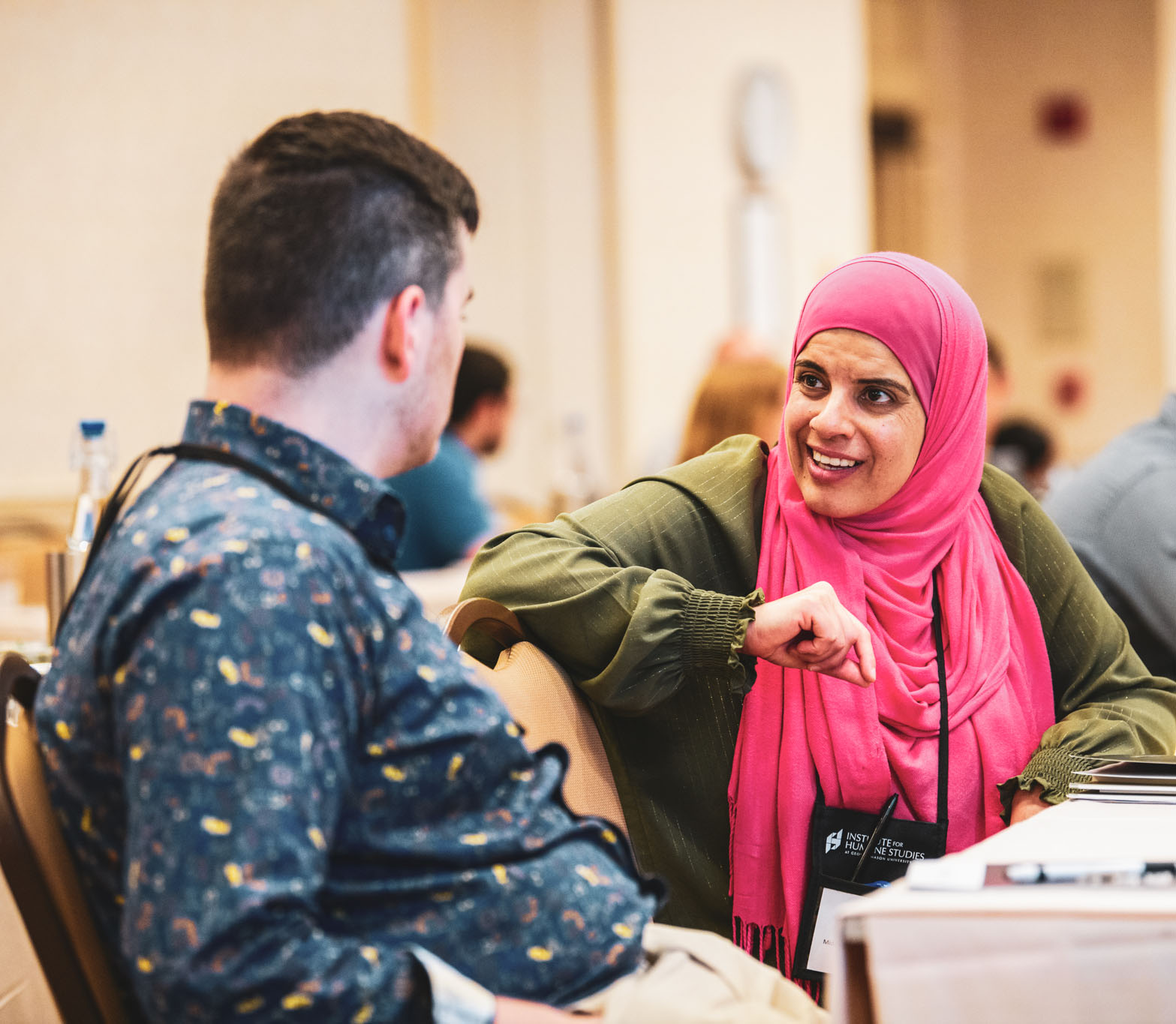Engage in Scholarly Discourse
Engage in Scholarly Discourse

Join the Conversation
Experience academic forums where current and aspiring scholars share ideas and engage in meaningful discourse. Join us at events — from academic seminars and symposia to conferences and colloquia — to discuss ideas and challenges shaping the good society.
Explore Upcoming Events
Present your research for feedback and collaborate with other scholars on proposals and papers.

Reframing Immigration Through Research: A Proposals Workshop
Zoom · Event date: July 10, 2025 · Event time:12:30–4:30 PM ET
Overview
The Institute for Humane Studies is pleased to invite scholars to a proposals workshop on contemporary challenges in immigration policy and public opinion. As public conversations around immigration continue to shape policy and public sentiment, IHS invites scholars to workshop ideas and receive feedback on proposals related to immigration attitudes and narratives, as well as the broader impacts of immigration policy.
The program will feature opening remarks from Alexander Kustov.
If your research relates to public opinion, narrative change, or the effects of immigration policies, we encourage you to apply. Areas of particular interest include the effectiveness of pro-immigration narratives, the relationship between policy design and voter reactions, the role of issue salience and agenda setting, and the unintended consequences of immigration enforcement. Please include an abstract or working proposal in your application.
All participants will be expected to submit a working proposal and to read and provide comments or feedback on other participants’ proposals.
This event will take place on July 10 from 12:30 to 4:30 PM Eastern Time, and will be hosted via Zoom.

Advancing Housing Research: A Proposals Workshop
Zoom · Event date: August 12, 2025 · Event time:12:30–5:00 PM ET
Overview
The Institute for Humane Studies is pleased to invite scholars to participate in “Advancing Housing Research: A Proposals Workshop.” As housing challenges continue to evolve, this workshop offers scholars an opportunity to receive feedback on proposals addressing key issues in housing research. The program will feature opening remarks from Jeffery Clemens.
We welcome proposals on a range of topics, including but not limited to: NIMBYism and housing development, the impact of zoning regulations on access to affordable housing, the effects of natural disasters on housing policy and availability, and how the current immigration enforcement environment is affecting housing construction.
If your research engages with these or related issues, we encourage you to apply. Please include an abstract or working proposal in your application. Spots are limited.
All participants will be expected to submit a working proposal and to read and provide comments or feedback on other participants’ proposals.
This event will take place on August 12 from 12:30 to 5:00 PM Eastern Time, and will be hosted via Zoom.
Meet and collaborate with scholars on a specialized research topic.
Join our research community and collaborate on research with academics and explore current topics through moderated panel discussions and breakout sessions.
IHS attends multiple academic conferences a year across a variety of disciplines. Catch up with IHS staff, learn about our support, and discuss ideas at an IHS-sponsored conference event.
American Economic Association (AEA)
Academy of Management (AOM)
American Philosophical Association-East (APA)
American Political Science Association (APSA)
American Sociological Association (ASA)
Association of Private Enterprise Education (APEE)
Association of American Law Schools (AALS)
International Studies Association (ISA)
Midwest Political Science Association (MPSA)
Philosophy, Politics, and Economics Society (PPE)
Public Choice Society (PCS)
Southern Economic Association (SEA)
Southern Political Science Association (SPSA)
Western Economic Association (WEA)